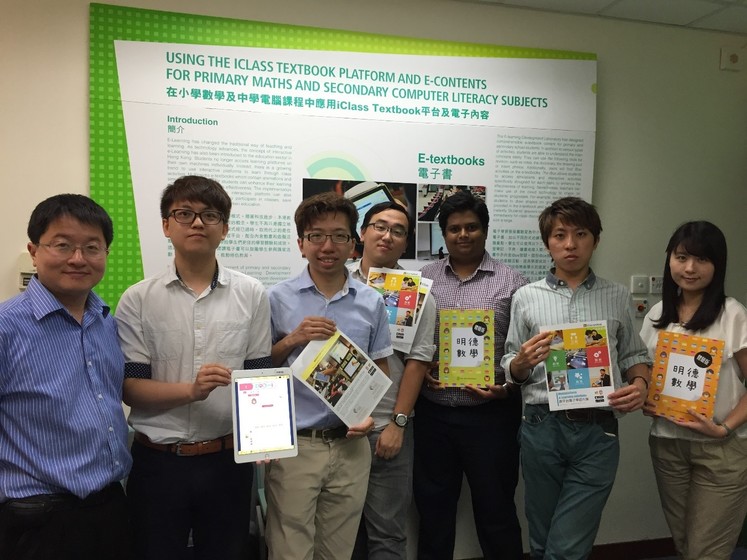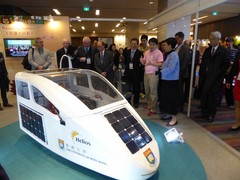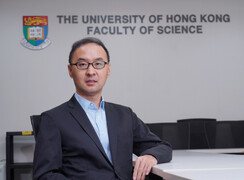A 21ST CENTURY LEARNING PROJECT
2015年10月29日
返回新聞Hong Kong’s 1,000-plus primary and secondary schools will soon all be equipped with wifi and other infrastructure for e-learning. But what does that learning look like? A team of engineering graduates are about to provide the first locally-developed answer.
The Hong Kong Unific Publishing Ltd. has been formed to market e-textbooks developed in HKU laboratories. The first two textbooks, on primary school maths and secondary school computer literacy, are nearing the final approval stage by the Education Bureau and should be on the market next year.
They are everything a modern-day young person would be familiar with – interactive, mobile, with multimedia including videos and 3D images – offered on a platform that has dramatically different capabilities to textbooks, CDs and websites. Teachers and students get the kind of immediate feedback that would have been unimaginable in the past.
For example, a student clicks on an incomplete bar chart and fills it in. The result is zinged to the teacher immediately, so he or she can check if the student has mastered the learning objective. Or, a whole class does a multiple choice quiz and the results are again immediately known, so the teacher can see where the class or individual students are having problems.
To Eric Au Yeung, one of the co-founders of HK Unific and a 2010 Engineering graduate of HKU, this is where the e-textbooks and their supporting platform do their magic.
“The teacher can focus on problem areas more and adjust their content and teaching. Imagine how long it would otherwise take to do a quiz on paper, have it collected and marked, and then for the teacher to enter the data on an Excel sheet,” he said.
One of his collaborators, 2013 Engineering graduate Shravan Sunderraman, agreed. “This technology uses big data mining combined with some artificial intelligence to aid both teachers and students in understanding individual student needs more easily.”
An important aspect of the project is that it is also compatible with printed textbooks. Scanning a QR code can take students to the interactive features of the e-textbook.
“There is now a transition from printed to e-learning textbooks and we want to minimise the obstacles so that schools can integrate them together,” Mr Au Yeung said. “Our platform can provide them with a new teaching and learning experience.”
Trials have been held with more than 100 schools and the feedback has been positive. In the long run, the developers said the platform could be made compatible with other publishers and even be used by schools outside Hong Kong.





